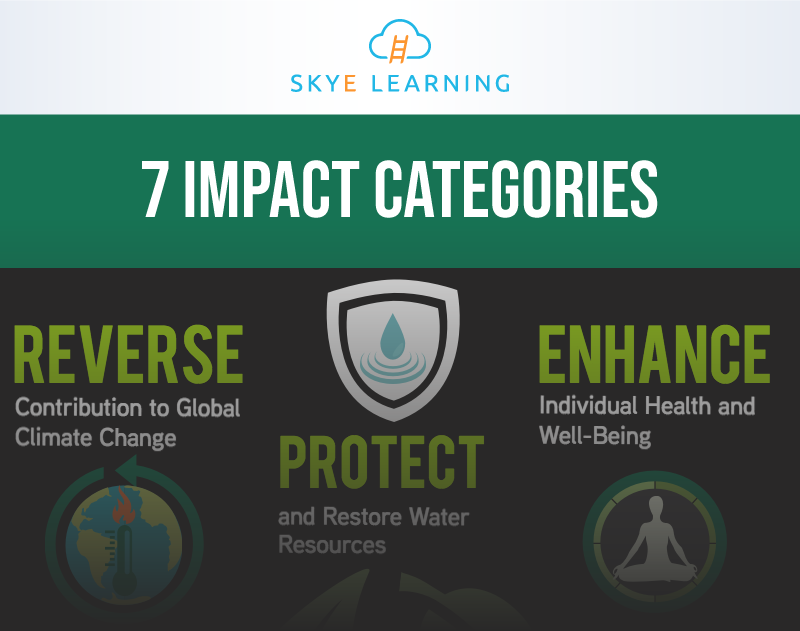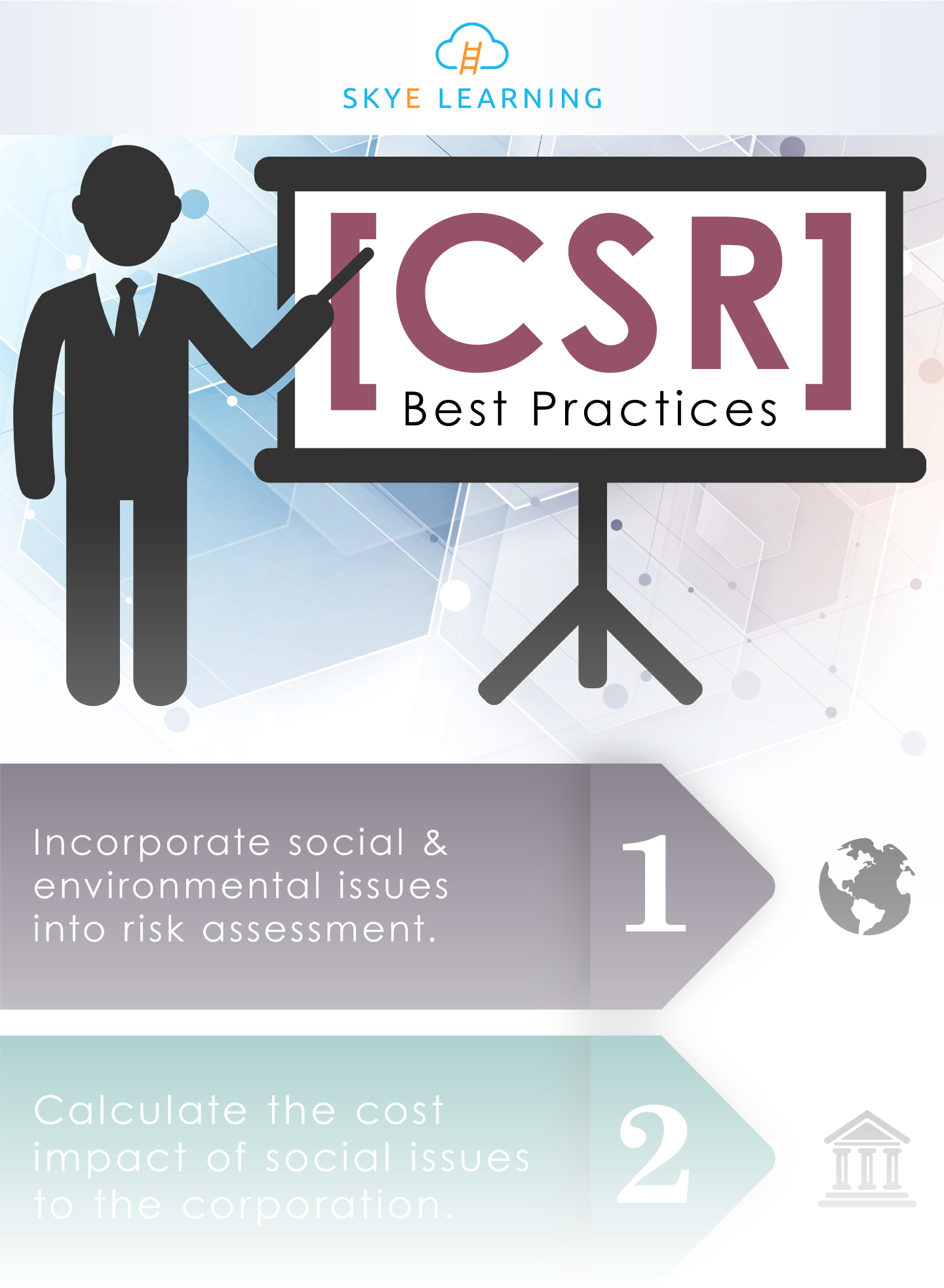LEED v4™ identifies seven impact categories that define the environmental issues that LEED® projects are tasked with addressing. The categories are focused on the overall themes of climate change, human health, water resources, biodiversity, material resources, a greener economy, and community. LEED® uses these impact categories as a performance-based framework. This framework, consisting of prerequisites and credits, is used by the building industry in the project accreditation process.
Corporate Social Responsibility Best Practices
As corporate social responsibility (CSR) gains widespread currency in the business world, corporate leaders are under increasing pressure to make socially responsible decisions on behalf of their companies. These decisions must adhere to legal requirements while also maximizing profits.
Enlightened senior management perceives CSR not as a burden but as an opportunity. Yes, social responsibility exacts demands on companies that commit themselves to it, but it also introduces chances for businesses to build social value. Not all corporate good deeds get rewarded by the marketplace. That being said, companies that undertake a thoughtful approach to CSR are more likely to increase their value while creating positive outcomes for society at large.







